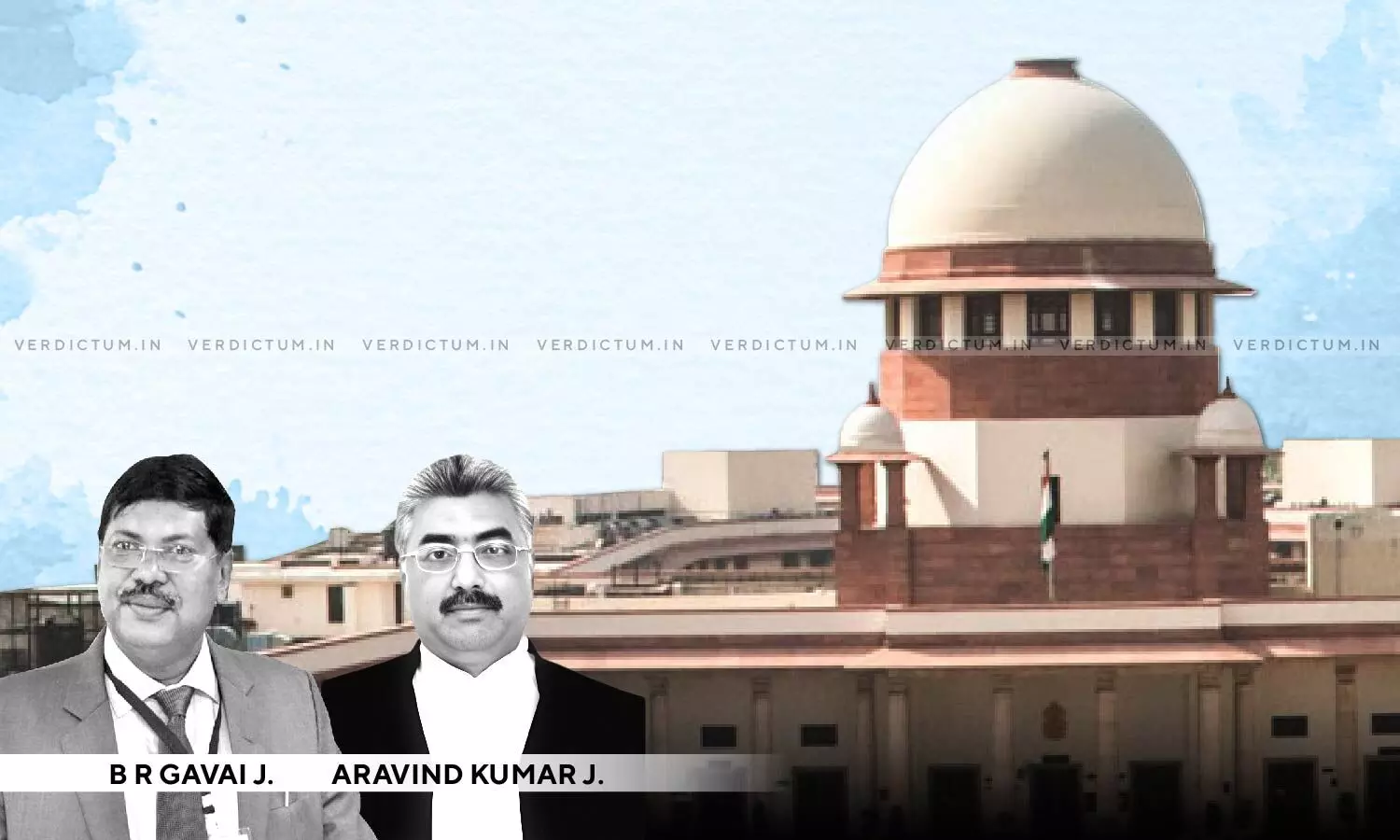
SARFAESI Act: Jurisdiction Exercised By Division Bench Was Analogous To One Under Order XLIII Rule 1 CPC: SC
 |
|The Supreme Court in an appeal has observed that the jurisdiction exercised by the Division Bench of the Calcutta High Court was analogous to the one exercised under Order XLIII Rule 1 of the Civil Procedure Code.
The two-Judge Bench of Justice B.R. Gavai and Justice Aravind Kumar said, “… it cannot be said that the action of the secured creditor, i.e. the appellant is either fraudulent or that its claim is so absurd or untenable which may not require any probe whatsoever. … We find that the present appeal deserves to be allowed on another ground also. Undisputedly, the jurisdiction which was exercised by the Division Bench was analogous to the one exercised under Order XLIII Rule 1 of the CPC.”
The Bench noted that the SARFAESI Act itself provides remedies to an aggrieved party in view of the provisions of Sections 17 and 18.
Senior Advocate Ashim Banerjee appeared for the appellant while Advocate Karan Batura appeared for the respondent.
In this case, an appeal assailed the judgment passed by the Division Bench of the Calcutta High Court thereby setting aside the order of the Single Judge, vide which an earlier interim order of the Single Judge directing the appellant to take steps to sell the suit property but not to pass final orders on the sale, had been vacated. The appellant was inducted as a tenant by M/s. Bharat Chamber of Commerce which preferred an ejectment suit against the appellant.
During the pendency of such an ejectment suit, the respondent purchased the aforesaid property and availed various credit facilities from the appellant to the tune of Rs. 42.74 crores by mortgaging the same as collateral. Owing to the financial defaults committed by the respondent, the appellant was constrained to classify the credit facilities as NPAs (Non-Performing Assets) and hence issued a demand notice but the same remained unmet.
The Supreme Court after hearing the contentions of the counsel asserted, “… the Single Judge had passed the said order on the basis of a statutory bar. As observed earlier, the scope in which a civil suit is maintainable as determined by this Court in the case of Mardia Chemicals Limited (supra) is very limited. The case of the respondent/plaintiff would not come within the said limited scope.”
The Court said that the Division Bench grossly erred in interfering with the discretion exercised by the Single Judge.
Accordingly, the Apex Court allowed the appeal, set aside the judgment of the Division Bench, and upheld the judgment of the Single Judge.
Cause Title- Punjab and Sind Bank v. Frontline Corporation Ltd.